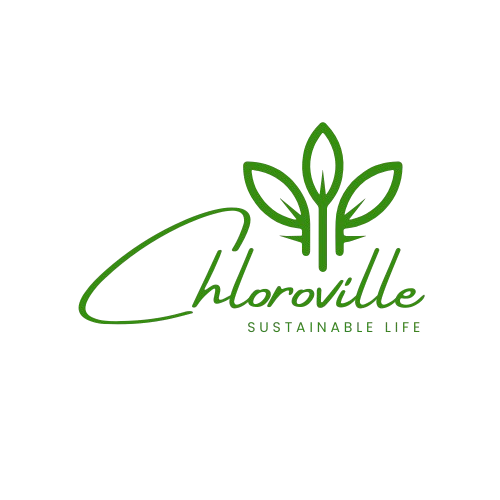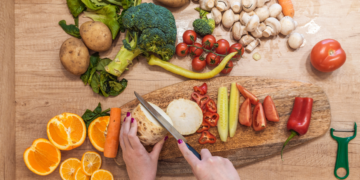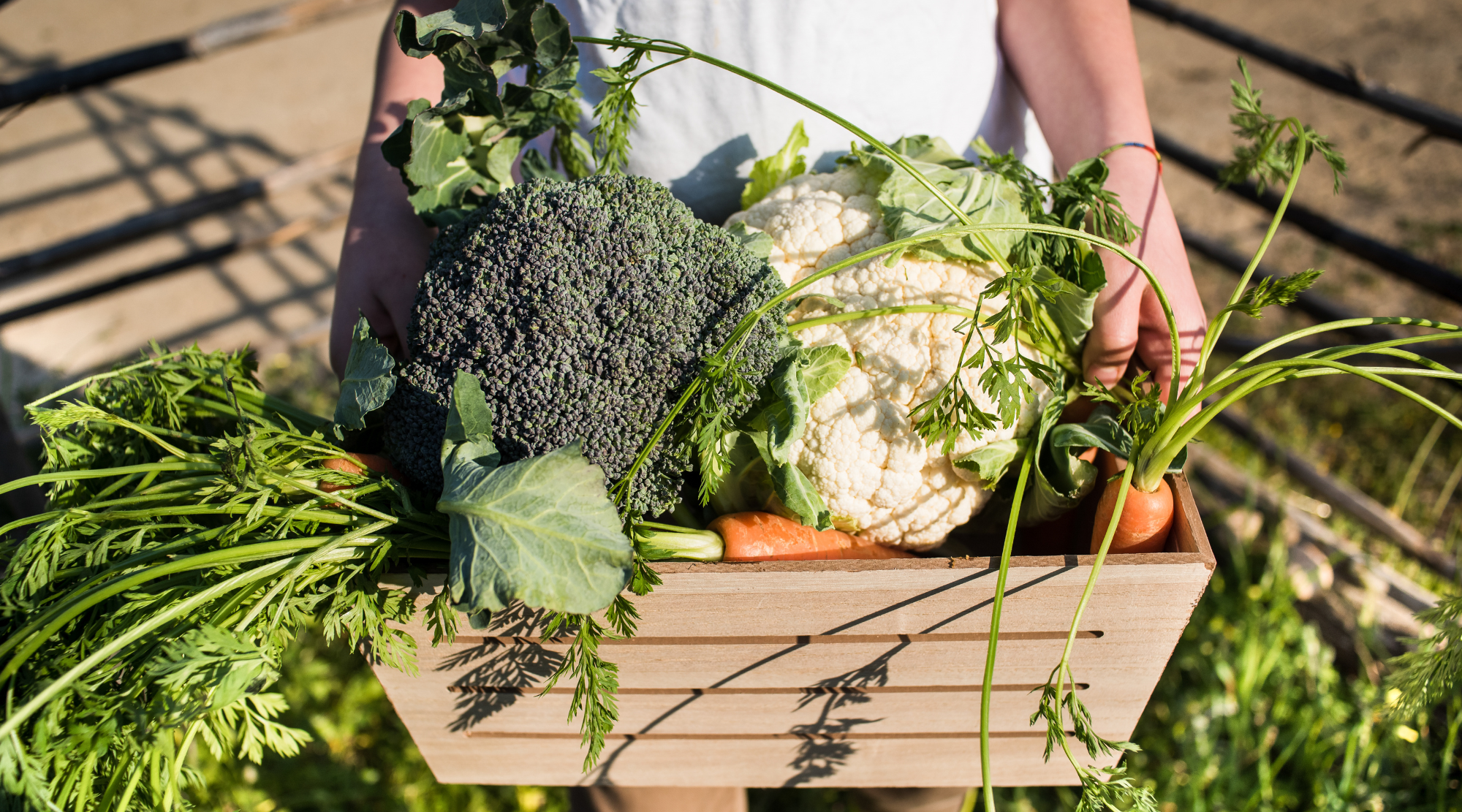Sustainable gardening is more than just a trend—it’s a crucial way to protect the environment while growing a healthy, thriving garden. By adopting eco-friendly practices, you can conserve resources, improve soil health, reduce waste, and support local biodiversity. Whether you’re just starting your gardening journey or looking to improve your existing garden, this beginner-friendly guide will help you understand how to implement sustainable gardening practices. Let’s dive into easy, actionable steps that anyone can take to make their garden more sustainable.
1. Composting: Turning Waste into Garden Gold
Composting is one of the simplest and most effective ways to recycle organic waste into rich, nutrient-filled soil. By composting kitchen scraps, grass clippings, and garden waste, you’ll reduce the amount of organic material that ends up in landfills and provide your plants with a natural, eco-friendly fertilizer.
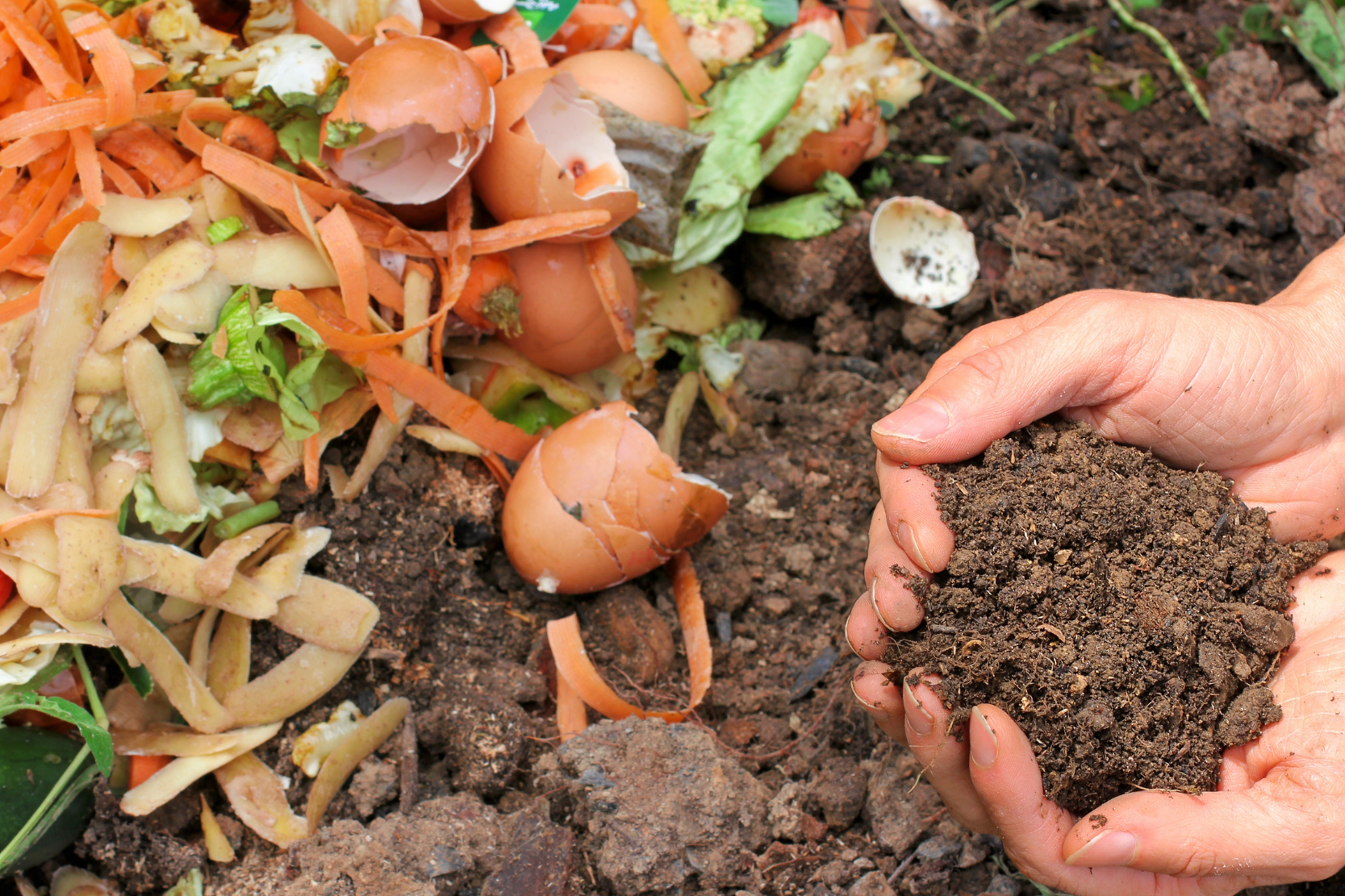
How to Start Composting:
- Create a compost pile in your backyard or use a compost bin.
- Add a mix of “greens” (food scraps, coffee grounds, and grass clippings) and “browns” (dry leaves, cardboard, and straw).
- Turn the compost regularly to aerate it and speed up decomposition.
- In a few months, you’ll have nutrient-rich compost to use in your garden beds.
For more in-depth information on how to compost and what materials to use, check out this comprehensive guide from the Royal Horticultural Society.
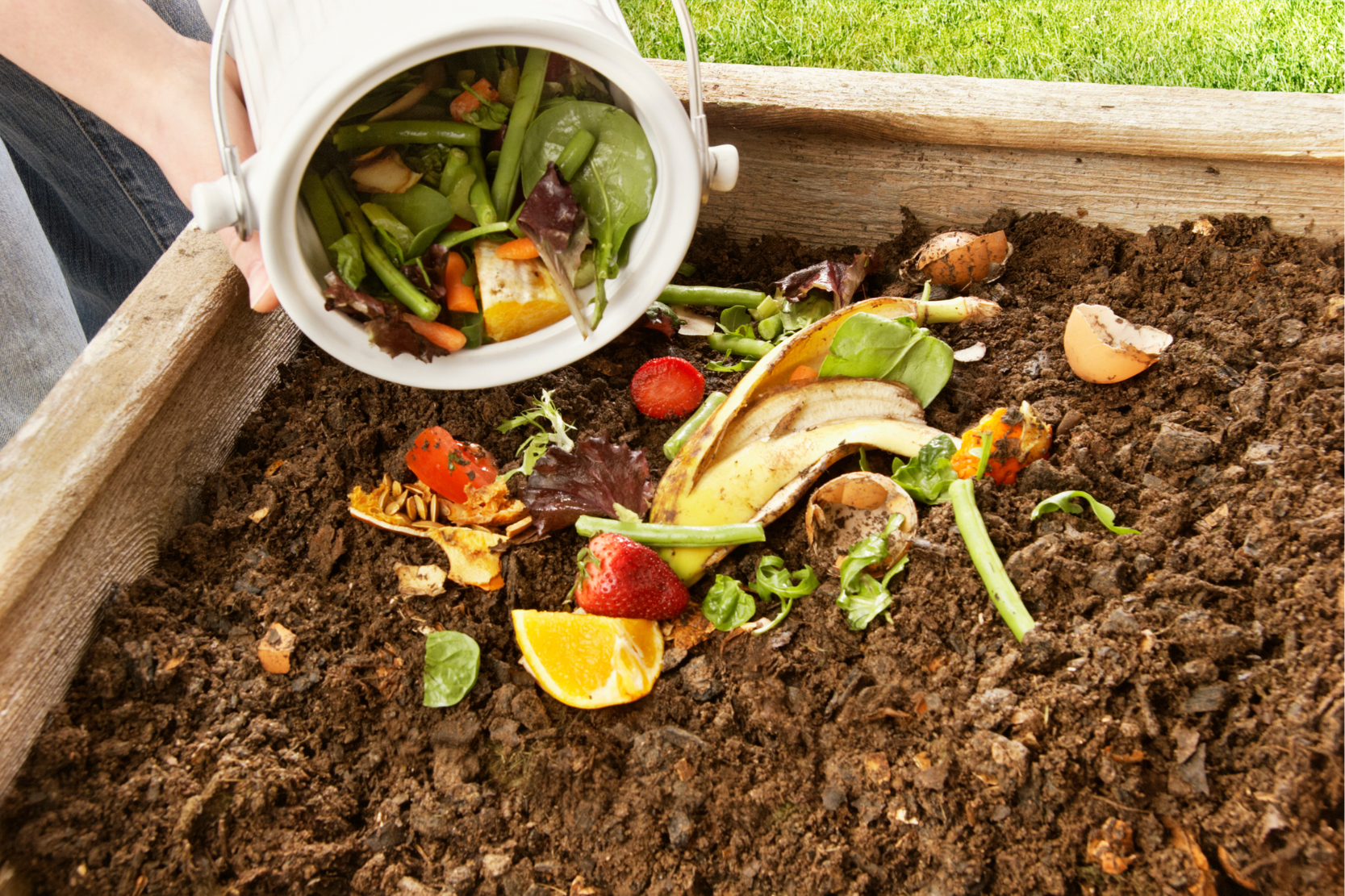
2. Conserving Water with Smart Techniques
Water conservation is key to sustainable gardening, especially in regions prone to drought. Reducing water waste helps conserve this precious resource while keeping your garden healthy.
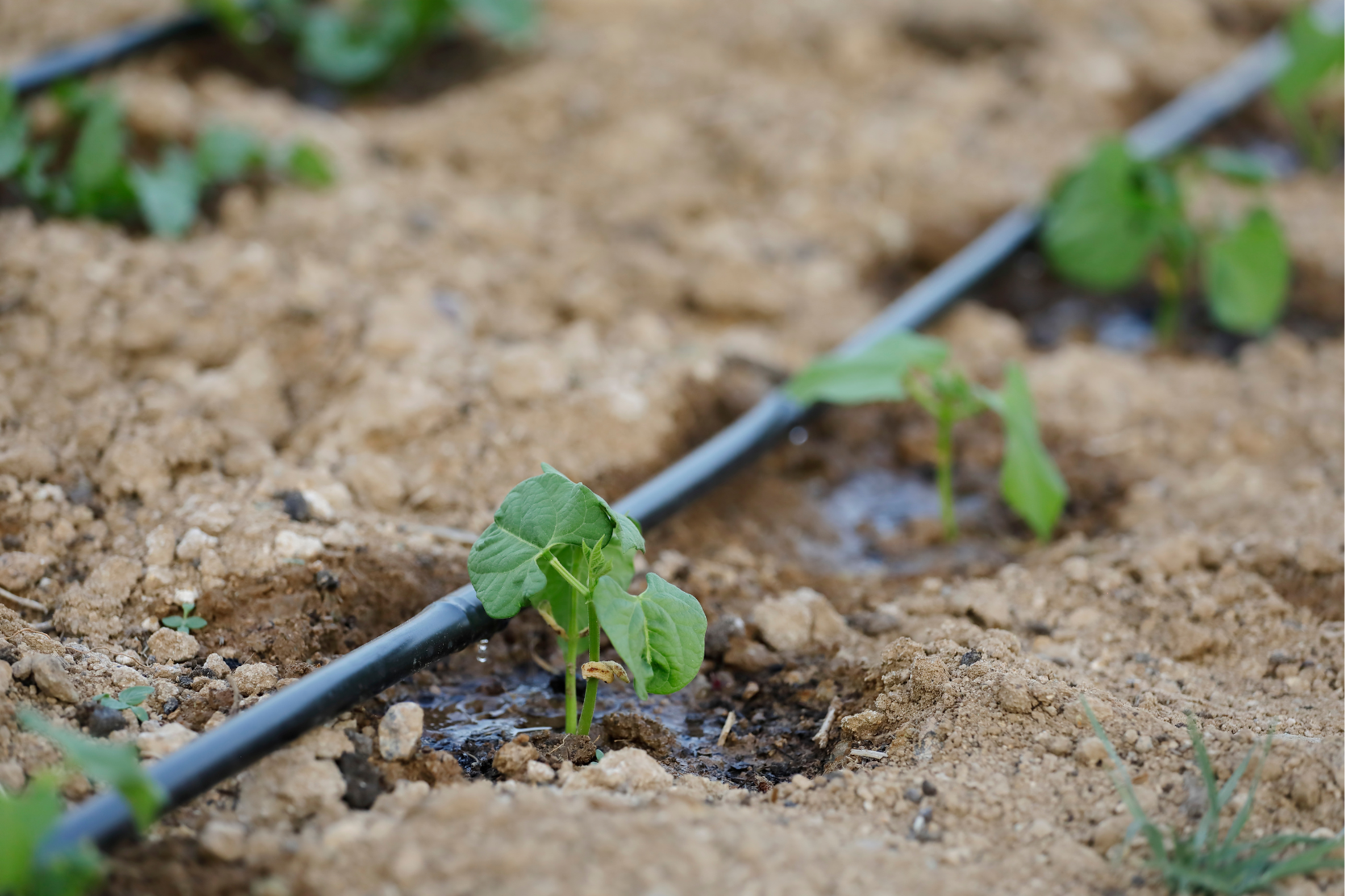
Water Conservation Tips:
- Drip irrigation: Use drip systems or soaker hoses to deliver water directly to plant roots, minimizing evaporation.
- Mulching: Apply a layer of organic mulch around your plants to retain soil moisture and reduce the need for frequent watering.
- Rainwater harvesting: Set up rain barrels to collect and store rainwater, which can be used to water your garden.
To learn more about water conservation techniques for your garden, read this guide by the U.S. Environmental Protection Agency.
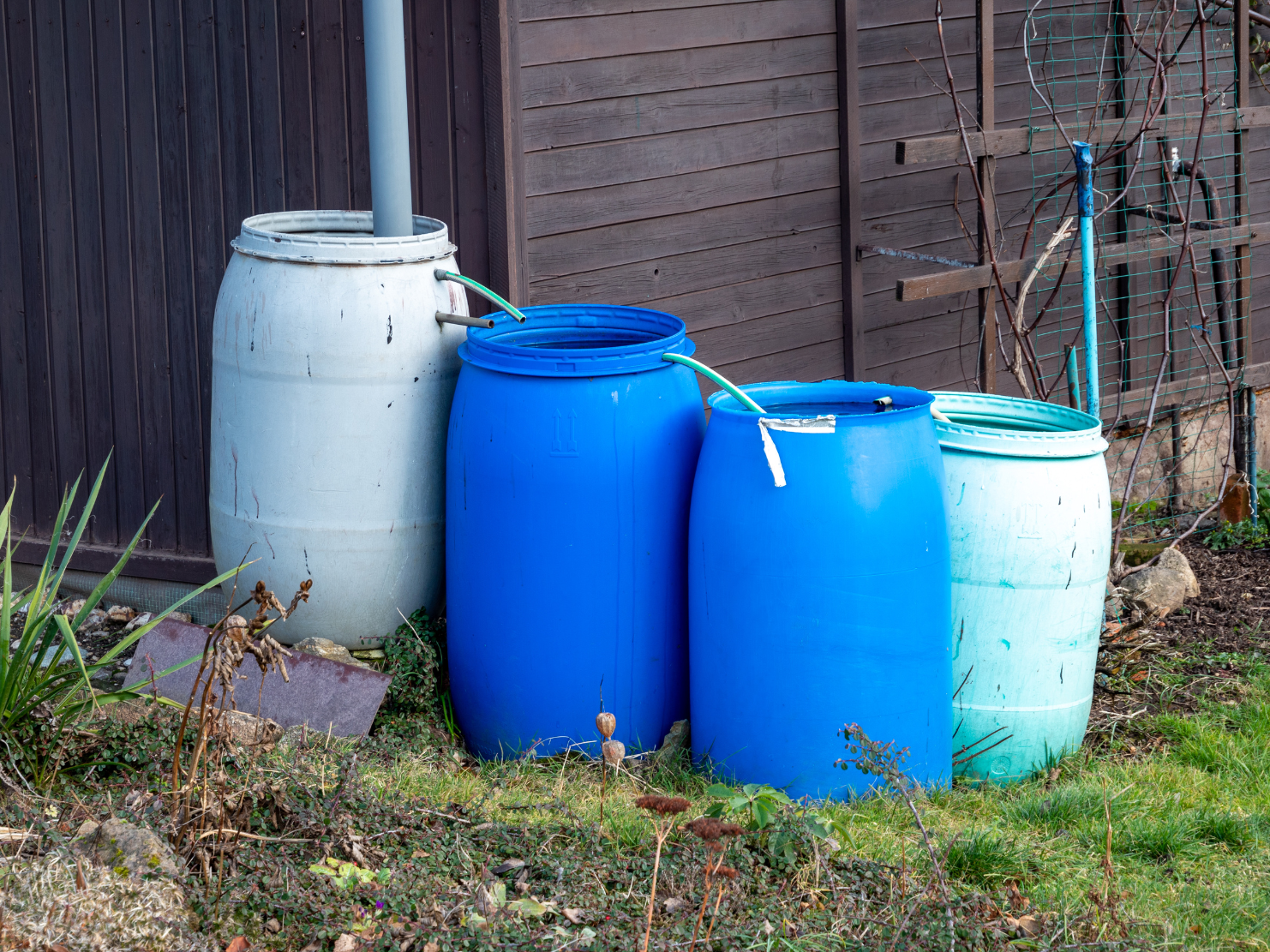
3. Use Native Plants to Promote Biodiversity
Planting native species is a sustainable gardening practice that supports the local ecosystem. Native plants are adapted to your region’s climate and soil, making them more resistant to pests and requiring less water and care.
Benefits of Native Plants:
- Provide food and shelter for local wildlife, including pollinators like bees and butterflies.
- Require less water, fertilizer, and maintenance compared to non-native species.
- Improve soil health by fostering local microbial activity.
4. Organic Pest Control Methods
Chemical pesticides may solve pest problems quickly, but they also harm beneficial insects, contaminate soil, and pollute water sources. Sustainable gardening focuses on organic pest control methods that protect your plants without damaging the environment.
Organic Pest Control Tips:
- Companion planting: Plant certain species together to repel harmful insects (e.g., marigolds repel aphids).
- Natural predators: Encourage beneficial insects like ladybugs and lacewings to control pests naturally.
- Neem oil and insecticidal soaps: Use these non-toxic treatments to deal with infestations without harming the ecosystem.
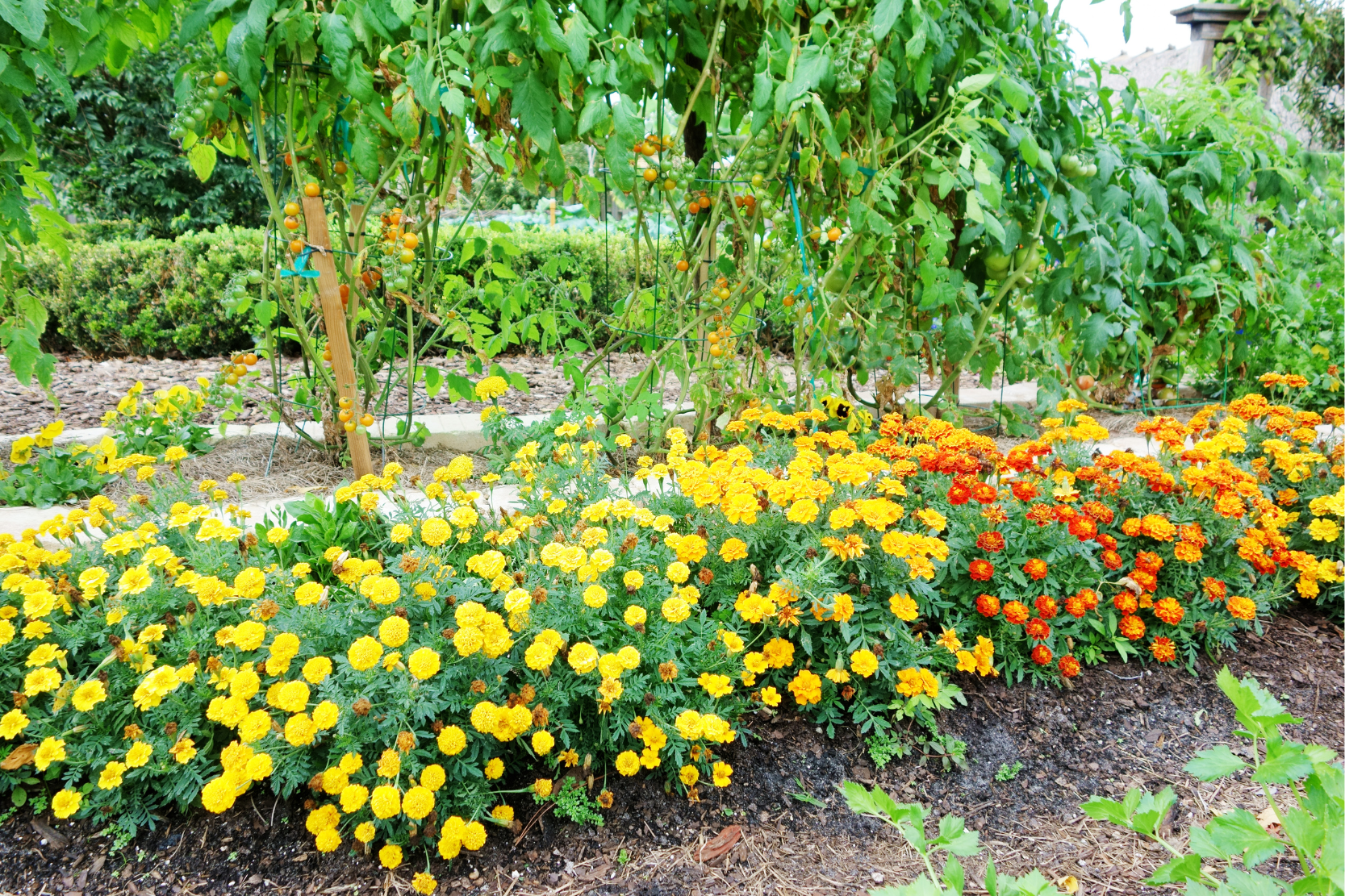
5. Mulching for Soil Health
This is a simple yet highly effective sustainable gardening practice that conserves water, improves soil structure, and prevents weeds from taking over.
Mulching Tips:
- Use organic mulch materials like straw, shredded bark, or compost.
- Apply a 2-3 inch layer around plants, being careful not to cover the stems.
- Mulch helps retain soil moisture, prevent erosion, and gradually adds nutrients as it decomposes.
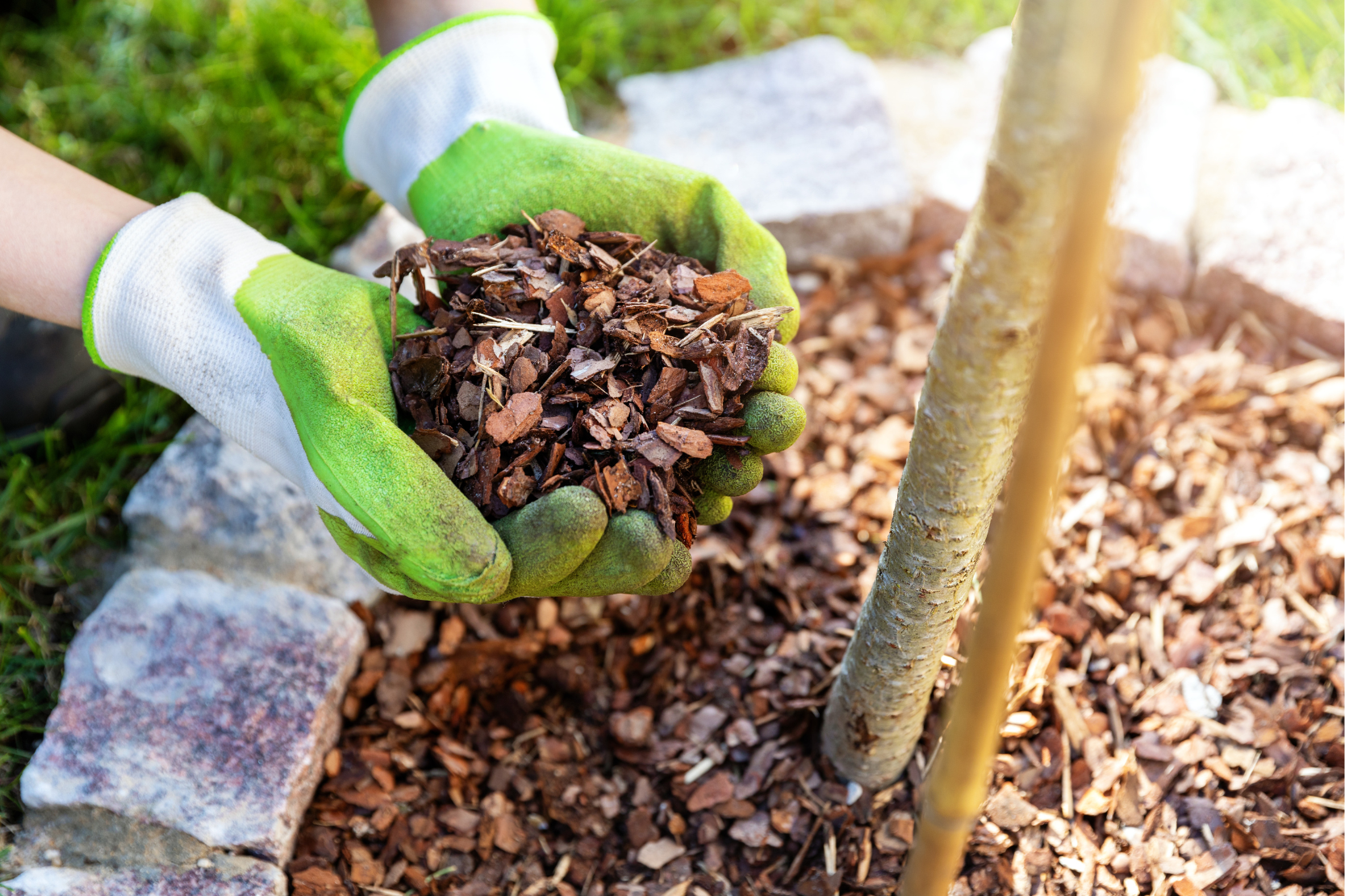
6. Building Raised Beds with Recycled Materials
Raised beds make gardening more accessible, improve soil drainage, and allow for better control over soil quality. Using recycled or upcycled materials to build your beds takes sustainable gardening a step further.
Steps to Build Raised Beds:
- Use materials like old bricks, untreated wood, or even recycled pallets.
- Fill the raised bed with organic soil and compost to create a rich growing environment.
- Raised beds are particularly useful for growing vegetables and help reduce soil compaction.
7. Supporting Pollinators with a Wildlife-Friendly Garden
Pollinators like bees, butterflies, and birds play a vital role in plant reproduction. Creating a wildlife-friendly garden will not only help your plants thrive but also support local ecosystems.
Pollinator-Friendly Gardening Practices:
- Plant a variety of flowering plants that bloom at different times of the year.
- Avoid using chemical pesticides that can harm pollinators.
- Provide water sources and nesting areas, such as birdbaths and bee hotels.
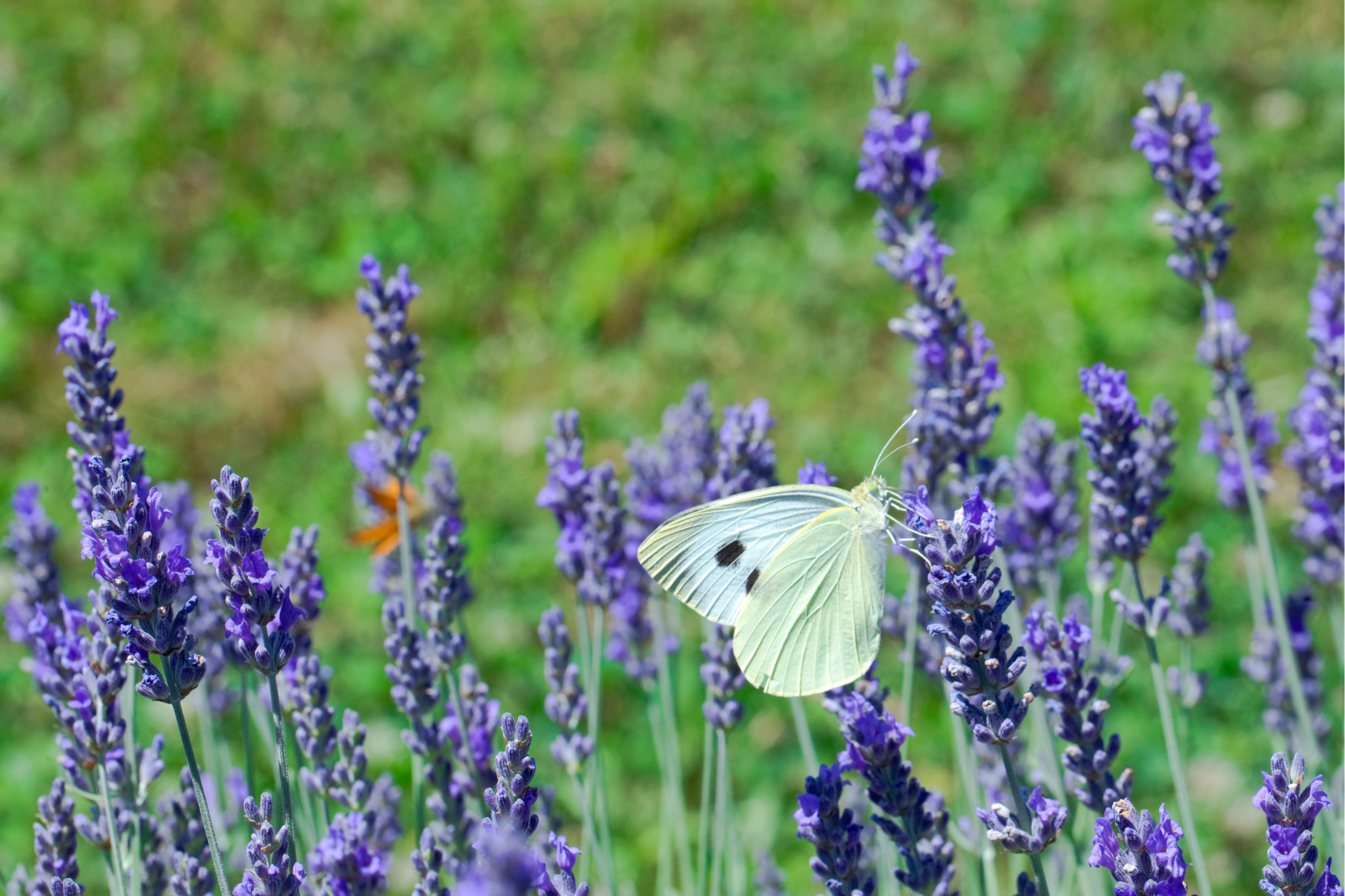
8. Practicing Crop Rotation
Crop rotation is a sustainable method that helps maintain soil fertility, reduce pests, and prevent diseases in vegetable gardens. By rotating crops, you’ll keep the soil healthy and reduce the need for chemical fertilizers.
How to Rotate Crops:
- Group crops by family (e.g., legumes, brassicas, root vegetables) and rotate them to different areas of the garden each year.
- Crop rotation helps replenish nutrients naturally, minimizing the need for synthetic fertilizers.
9. Sustainable Soil Management
Maintaining healthy soil is the foundation of sustainable gardening. Avoiding chemical fertilizers and focusing on soil health ensures that your plants receive the nutrients they need while protecting the environment.
Tips for Healthy Soil:
- Incorporate organic matter like compost and manure to improve soil structure and nutrient levels.
- Avoid tilling the soil to preserve the natural structure and microbial life.
- Practice no-dig gardening to reduce soil disturbance and erosion.
10. Creating a Zero-Waste Garden
Sustainable gardening is all about reducing waste. By making smart choices, you can minimize the waste your garden produces and create a self-sustaining ecosystem.
Zero-Waste Tips:
- Reuse containers: Repurpose old pots, containers, or crates for growing plants.
- Recycle garden waste: Use clippings and trimmings in compost, or as mulch.
- Make your own fertilizers: Create nutrient-rich compost teas from kitchen scraps and organic material.
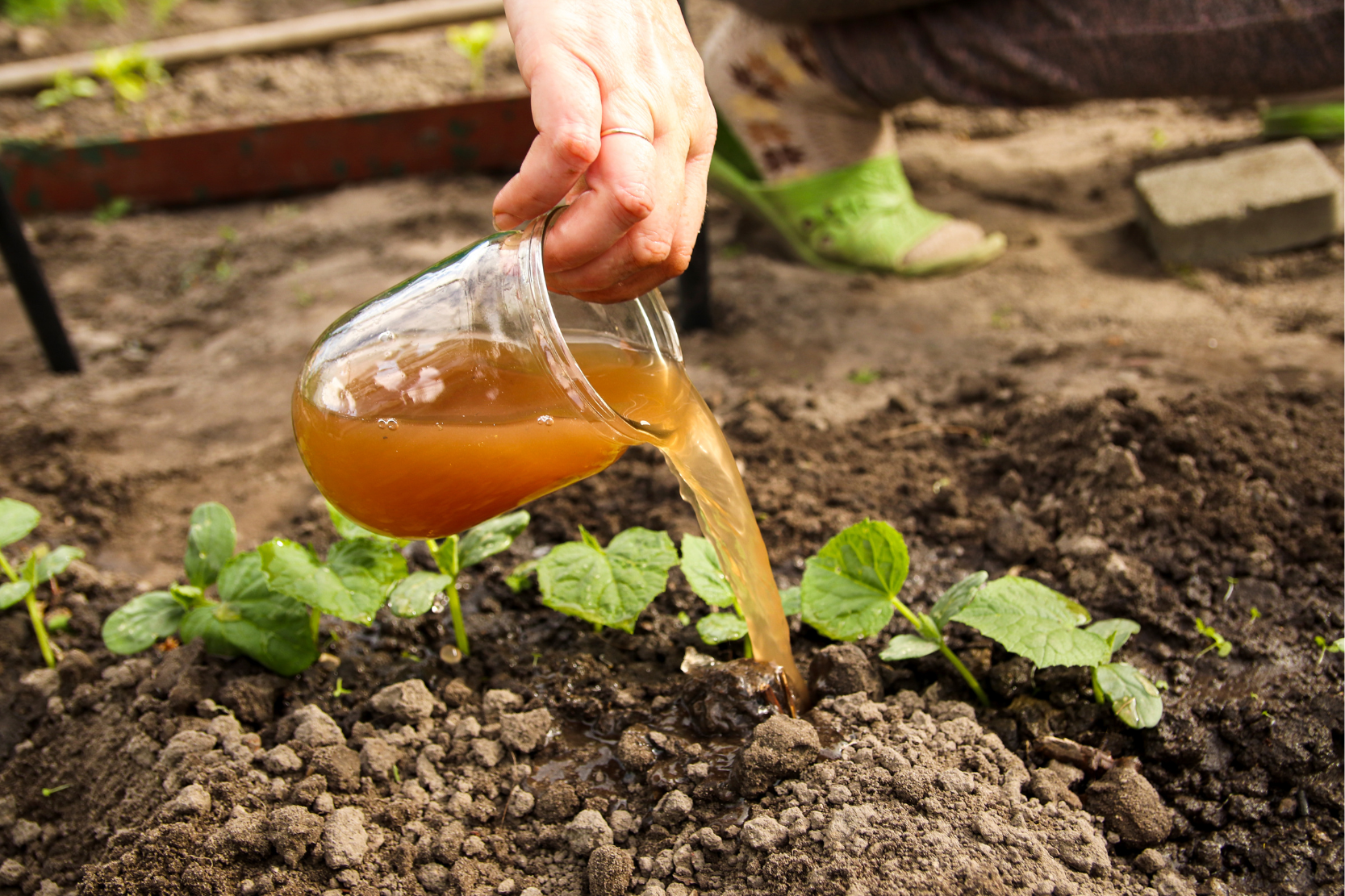
For creative ways to recycle old beer in your garden, check out our guide How To Use Beer For Plants: 10 GeniusGardening Hacks To Recycle Old Beer. You’ll discover clever hacks to improve plant growth and repurpose unused beer for a healthier garden.
Conclusion
Implementing sustainable gardening practices is easier than you might think and can make a huge impact on your garden and the environment. From composting and water conservation to choosing native plants and supporting pollinators, the steps outlined in this guide will help you create an eco-friendly, thriving garden. By following these tips, even beginners can make their garden more sustainable and enjoy the benefits of a healthier, greener space.
